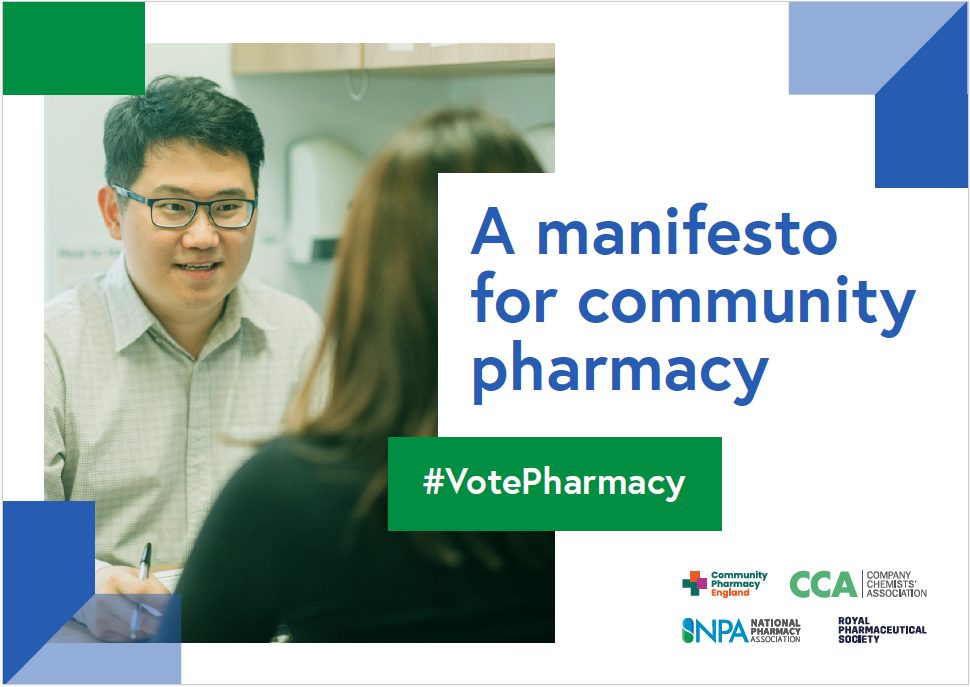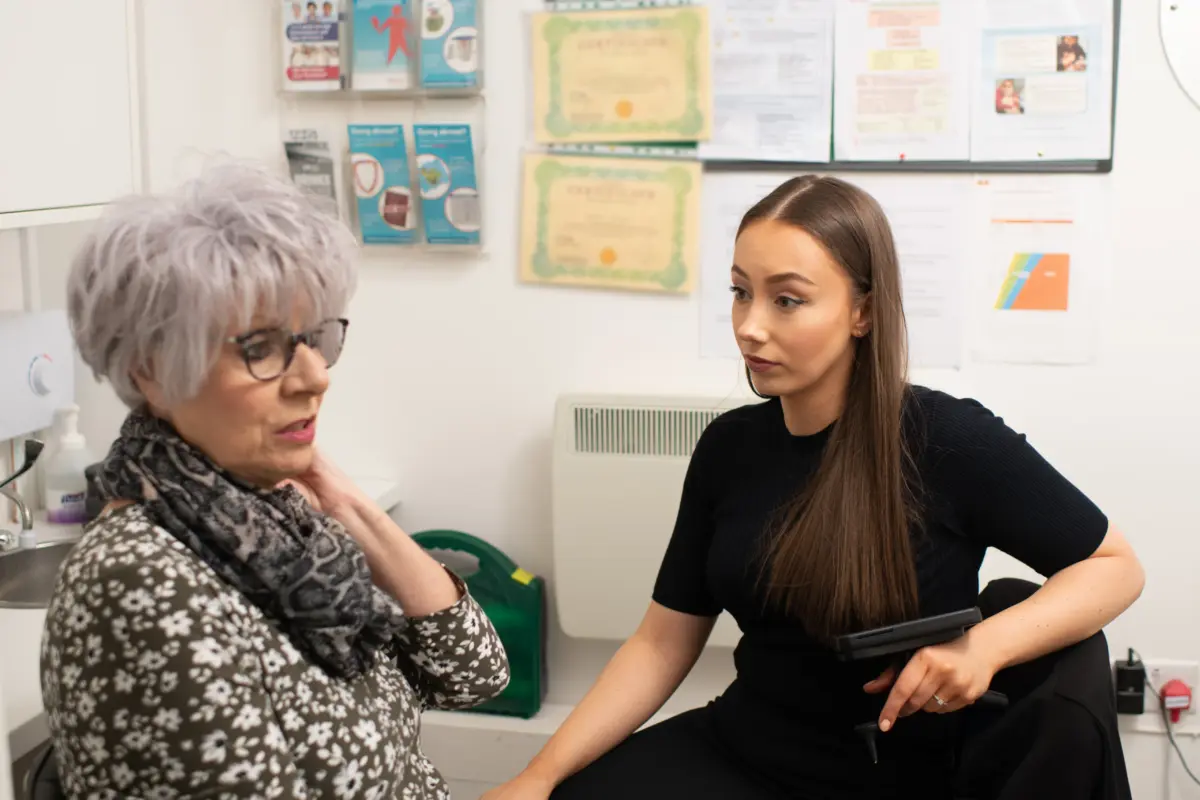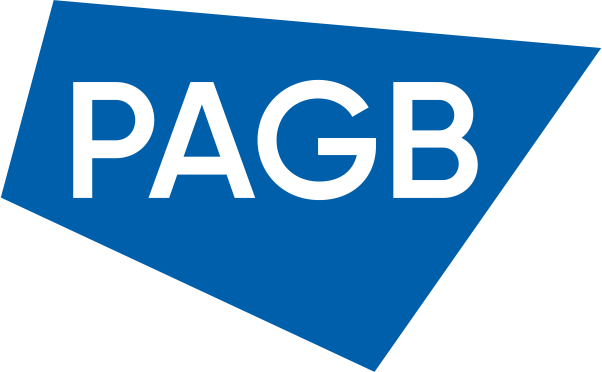The GP contract
Published on: 1st August 2013 | Updated on: 30th March 2022
Community pharmacy teams need to work closely with colleagues in general practices in order to provide the best possible care for patients. Effective collaborative working is helped by GP and pharmacy teams understanding how their colleagues work on a day to day basis.
This section of the website contains a brief description of the GP contract and related resources for community pharmacists and their teams in order to support understanding of the way GP practices operate and thus joint working at a local level.
Since April 2004, three contracting routes have been available to enable commissioning of primary medical services (‘GP services’). The routes are:
- General Medical Services (GMS);
- Personal Medical Services (PMS) which includes Specialist PMS (SPMS); and
- Alternative Provider Medical Services (APMS).
In January 2019, NHS England implemented a number of changes to GP services to drive forward commitments made in the NHS Long Term Plan.
General Medical Services (GMS)
This contracting route is provided for by the NHS Act 2006 and the NHS (General Medical Services Contracts) Regulations, and it is underpinned by a nationally agreed GMS contract. Currently, about 68% of practices are on GMS contracts.
The GMS contract covers three main areas:
- The global sum – covering the costs of running a general practice, including some essential GP services;
- The Quality and Outcomes Framework (QOF) – covering two areas – clinical and public health. Engagement with QOF is voluntary, but most practices do choose to participate; and
- Enhanced services – covering additional services that practices can choose to provide. These services can be commissioned nationally or locally.
Personal Medical Services (PMS)
This contracting route is provided for by the NHS Act 2006 and the NHS (Personal Medical Services Agreements) Regulations. This is a local contract agreed between NHS England and the practice, together with its funding arrangements. Around 27% of practices in England are on PMS contracts. The GMS contract has a strong influence on the content and scope of this contract. Specialist PMS is an additional, local flexibility to help to address unmet needs amongst client groups that traditionally have experienced primary medical services as being more difficult to access, for example, homeless people, prisoners, drug users.
Alternative Provider Medical Services (APMS)
APMS contracts are provided under Directions of the Secretary of State for Health and Social Care. APMS contracts can be used to commission primary medical services from traditional GP practices as well as others such as:
- Commercial providers;
- Not-for-profit organisations;
- Voluntary and community sector organisations;
- NHS Trusts; and
- NHS Foundation Trusts.
Primary medical services comprise:
Essential services – every GMS practice is required to provide Essential services (or, in PMS, their equivalent) to their registered patients and temporary residents. Essential services cover the:
- Management of patients who are ill or believe themselves to be ill, with conditions from which recovery is generally to be expected, for the duration of that condition, including relevant health promotion advice and referral as appropriate, reflecting patient choice wherever practicable;
- General management of patients who are terminally ill; and
- Management of chronic disease in the manner determined by the practice, in discussion with the patient.
Additional services – all GMS and PMS practices have a preferential right to provide additional services. Practices can, however, temporarily or permanently, opt out of providing additional services in accordance with fixed rules. Where opt-outs occur, NHS England is required to commission the services from a different provider.
Enhanced services – NHS England will commission some Enhanced services nationally using single specifications. NHS England also has the flexibility to locally commission Enhanced services to meet the differing primary care needs of local populations.
Community-based services – CCGs may choose to commission these services to reflect local needs and priorities.
The Quality and Outcomes Framework (QOF)
The QOF is a voluntary scheme that provides funding to support aspiration to and achievement of a range of quality standards, by rewarding practices for the volume and quality of care delivered to their patients.
It measures practice achievement against evidence based clinical, public health, quality and productivity and patient experience indicators. Practices earn points according to their levels of achievement and payments are calculated on the points the practices achieve.
The clinical domain in QOF includes conditions such as Chronic Obstructive Pulmonary Disease (COPD), diabetes mellitus and hypertension.
At the end of January 2019, NHS England published a five-year framework for GP services agreed with the British Medical Association (BMA) General Practitioners Committee (GPC) in England and supported by Government. It implements commitments in the NHS Long Term Plan for changes to the GP contract and sets the direction for primary care for the next five years.
One of the major changes in the contract is the introduction of the Network Contract as a Directed Enhanced Service. This will enable general practice to take a leading role in every Primary Care Network (PCN) and goes live on 1st July 2019. The Network Contract is an extension of the core GP contract, rather than a separate contract, which must be offered to all practices.
The Network Contract has three main parts:
- National Service Specifications (what practices must deliver);
- Network Financial Entitlements (funding); and
- Supplementary Network Services (Clinical Commissioning Groups (CCGs) and PCNs may develop local schemes and add these as an agreed supplement to the Network Contract, supported by additional local resources).
All PCNs will have a Network Agreement which sets out its collective rights and obligations as well as how it will partner with non-GP practice stakeholders. It will also include a patient data-sharing requirement, in order to support safe and effective delivery of patient care.
PCNs will be the foundation of all Integrated Care Systems (ICS) and every ICS will have a critical role in ensuring that PCNs work in an integrated way with other community staff and providers; collaboration arrangements with other local organisations will form a distinct part of every Network Agreement.
PCN funding also covers around 20,000 healthcare professionals working in PCNs, alongside existing community health teams, providing tailored care or patients and allowing GPs to focus more on patients with complex needs.
Other changes in the GMS contract of relevance to community pharmacy teams include:
- All practices should be offering and promoting electronic ordering of repeat prescriptions and using electronic repeat dispensing for all patients for whom it is clinically appropriate, as a default from April 2019;
- By April 2020, practices will no longer use fax machines for either NHS or patient communications; and
- All patients will have online access to their full record, including the ability to add their own information, as the default position from April 2020.
Community Pharmacy England has worked with NHS Employers and the GP committee of the British Medical Association to develop guides to general practice and community pharmacy for pharmacy and GP teams respectively.
NHS England webpage on the GP contract
Community Pharmacy England Briefing 008/19: A five-year framework for GP contract reform to implement the NHS Long Term Plan (February 2019)
At the end of January 2019, NHS England published a five-year framework for GP services agreed with the British Medical Association (BMA) General Practitioners Committee (GPC) in England and supported by Government. It implements commitments in the NHS Long Term Plan for changes to the GP contract and sets the direction for primary care for the next five years.
This Community Pharmacy England Briefing sets out a summary of the key aspects of the framework, which are of most relevance to community pharmacy teams and Local Pharmaceutical Committees.
Community Pharmacy England Briefing 027/16: General Practice Forward View (May 2016)
The GPFV document contains specific practical and funded steps on investment, workforce, workload, infrastructure and care redesign. This Community Pharmacy England Briefing summarises the elements of the plan which are of most relevance to community pharmacy.
Community Pharmacy England Briefing 020/16: Changes to the GMS contract in 2016/17 (March 2016)
This briefing sets out a summary of the key changes to the General Medical Services contract in England for 2016/17, which may be of relevance to community pharmacy teams. These changes have been agreed between NHS Employers, on behalf of NHS England and the British Medical Association’s General Practitioners Committee.
Community Pharmacy England Briefing 012/16: Update on Patient Facing Services (PFS) (February 2016)
This Community Pharmacy England Briefing describes patient facing services (PFS) being provided via NHS and GP IT systems. Such services increasingly allow patients to use the internet to view their electronic medical record, order repeat prescriptions, communicate with their GP practice and book GP appointments. Community pharmacy teams may want to ensure they understand how these services are being used in their area in order to allow them to provide appropriate advice to patients.












